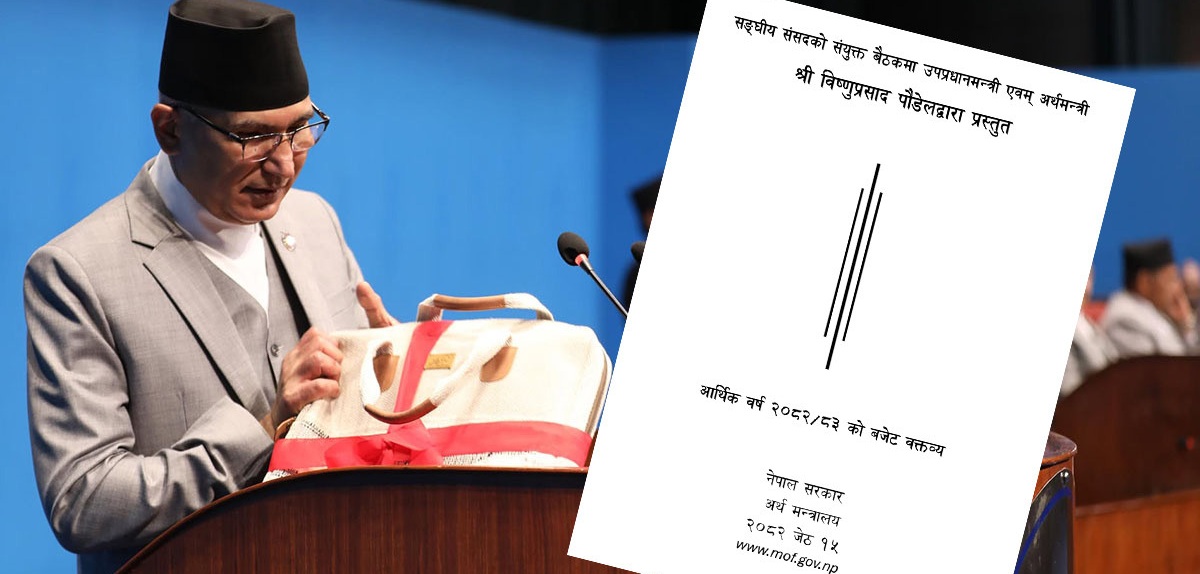Kathmandu: The government spent over Rs. 233 billion in the month of Asar (June/July) alone.
After falling behind on spending during the earlier months of the current fiscal year, the government disbursed billions just in Asar.
According to data from the Office of the Financial Comptroller General, the government spent Rs. 233 billion from Asar 1 (15 June) to Asar 30 (14 July).
Experts have consistently raised concerns about the government’s excessive spending in Asar, the final month of the fiscal year.
Out of this, Rs. 129 billion was spent under the recurrent expenditure, which includes salaries, allowances, and official events. Similarly, over Rs. 71.56 billion was spent under the capital heading in the name of development during this period.
Additionally, over Rs. 32 billion was spent solely in Asar to service public debt. Due to increasing public debt, the government has been struggling to manage its financial obligations.
As of 14 July, around 81.49 percent of the total budget has been spent. Former Finance Minister Barshaman Pun had presented a budget of Rs. 1.86 trillion, of which Rs. 1.516 trillion has been spent to date.
This fiscal year too, the government has continued the trend of heavy spending on administrative functions. Out of the Rs. 1.14 trillion allocated for recurrent expenditure, Rs. 980.97 billion has already been spent. From the Rs. 352 billion development budget, Rs. 215 billion had been spent by the end of Asar.
This budget was introduced by the government led by Pushpa Kamal Dahal, but its implementation responsibility later fell to the government led by KP Sharma Oli following a shift in the ruling coalition. It has now been a year since the new government was formed.
Except in special circumstances, it is rare for the country’s first and second largest parties to form a coalition. However, at the end of last Asar, the Nepali Congress and UML formed a government together. One year into its tenure, the government has yet to deliver on public expectations.
Despite hopes of private sector enthusiasm, infrastructure projects failed to gain the expected momentum, and systemic issues such as corruption, irregularities, and inefficiencies within the budget implementation process persist.
New budget to be implemented from Thursday
The current fiscal year ends on Wednesday. Starting Thursday, the budget for fiscal year 2025/26, presented by Deputy Prime Minister and Finance Minister Bishnu Prasad Paudel on 29 May, will be implemented.
The Ministry of Finance has already prepared a budget implementation guideline. On 17 July, a circular will be sent to all ministries, departments, and agencies to begin implementation.
Finance Minister Paudel had unveiled a budget of Rs. 1.964 trillion for FY 2025/26. Of this, Rs. 1.18 trillion has been allocated for recurrent expenditure, Rs. 407 billion for capital expenditure, and Rs. 375.24 billion for fiscal management.
To finance this budget, the government plans to raise Rs. 1.315 trillion from revenue, Rs. 53.45 billion from foreign grants, Rs. 233 billion from foreign loans, and Rs. 362 billion from domestic loans.
Some tax-related provisions of the budget presented on 29 May have already come into effect. Since the budget has been passed by the Federal Parliament, the government faces no obstacles in enforcing it from Thursday.
By implementing the budget from 17 July, the government aims to expand economic activities, boost private investment, increase employment opportunities, complete infrastructure projects within schedule, and achieve a 6 percent economic growth target.



Comment Here